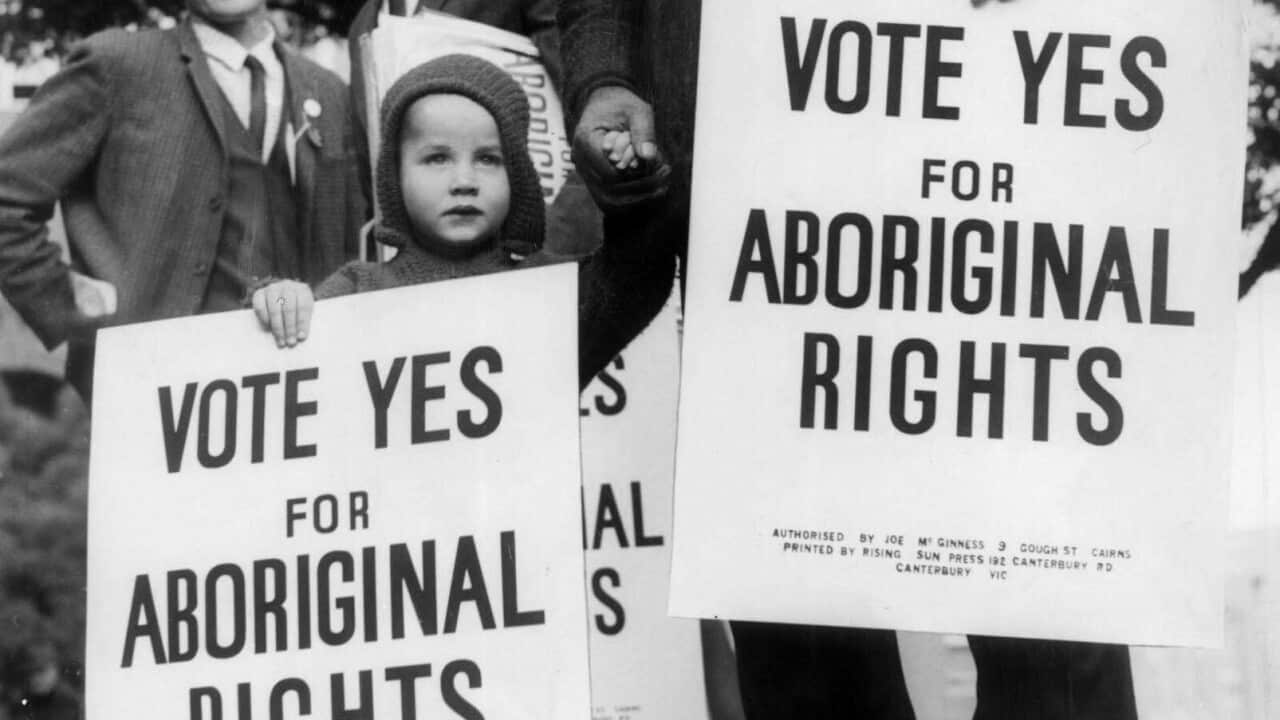O le Aso Toona'i, Aso 27 o Me 1967, (56 tausaga ua mavae), na faia ai se palota faalaua'itele, se referendum e mafai ai ona faitaulia tagata muamua, Aboriginal ma Torres Strait Islanders i le tusiga igoa i Ausetalia nei.
O le referendum lenei o loo aupito manatuaina i le tala faasolopito o le atunu'u ona o le tulaga na lagolagoina ai.
O se tasi na lalamua i le tuleiina o le mau e teuteu ai le Faavae ina ia aloa'ia ai le faitaulia o tagata muamua i tusiga igoa, o le tama'ita'i o Shirley Peisley na ta'imua i le referendum o le 1967 i South Australia.
"So the 1967 Referendum, we were counted for the first time as human beings living in our own country."
O le 90 pasene o tagata i le atunuu na tali i le 'Ioe' i le Referendum ma mafai ai e le malo tele ona faia tulafono ma faai'uga i mata'upu e aofia ai tagata muamua - ma ave'esea mai ai lea pule mai setete ma teritori.
Na saunoa Tanya Hosch o le faalapotopotoga le Australians for Indigenous Constitutional Recognition, o le faata'ita'iga lea i le 1967 e tatau ona tulimata'i ma manatuaina i le faamoemoe e pei ona talotalo nei iai i se leo o tagata muamua i le palemene tele.
"You know, what I still find uplifting about the 1967 referendum example, the work of Shirley and the other leaders of the time, was that they were excited about the opportunity for change in the country, and that I think became infectious."
Na faaalia e Aunty Shirley o le lagona na iai i le 1967, o le iai lea o se avanoa e amata ona faatalanoa ai ma tagata lautele mata'upu i tagata muamua ma mea na tutupu i aso ua mavae.
"We all felt excited about it because we knew we could do something to change what had happened in the past. So we did a lot of talking to individual people we were meeting in the street, and handing out paper work for them, simple paper work, for them to understand."
Na saunoa Tanya Hosch o le isi itu e tatau ona manatua, i le 1967, e le'i to'atele ni tagata ua feiloa'i ma faamasani i tagata muamua, ma e le'i tele ni auala e faaailoa ai mata'upu i tagata muamua ona e le'i taatele faasalalauga e pei ona iai i aso nei.
"If you think about Australia in 1967, the majority of Australians probably had not met an Indigenous Australian in their life at all. And so these individuals who gave freely of themselves, even with some degree of vulnerability, to introduce themselves as representatives of who First Australians were and are, just to help other Australians understand how important it was that we should be counted as citizens in the country."
Na saunoa Professor George Williams, e faapitoa lona tomai i le mata'upu o le Australian constitutional law i le University of New South Wales, o le isi vaega e 'ese mai ai le mau lea na faia iai le referendum i le 1967, ona e le'i iai se itu tete'e poo se itu na tuleia se finauga i le 'Leai' i le faitaulia o tagata muamua i le tusiga igoa.
"One thing that's really striking about 1967 is just how positive almost all of the messaging was. There wasn't a no case from the parliament, almost no opposition, and Australians were really won over as much by hearts as they were by minds. They wanted this, they felt good about the change, and they felt this was a basic injustice that was being remedied."
(Ripoti na faamaopoopoina e Catriona Stirrat ma Peta Doherty mo le SBS News , tapenaina mo faasalalauga e Ioane Lafoa'i mo le SBS Samoan).
Share

